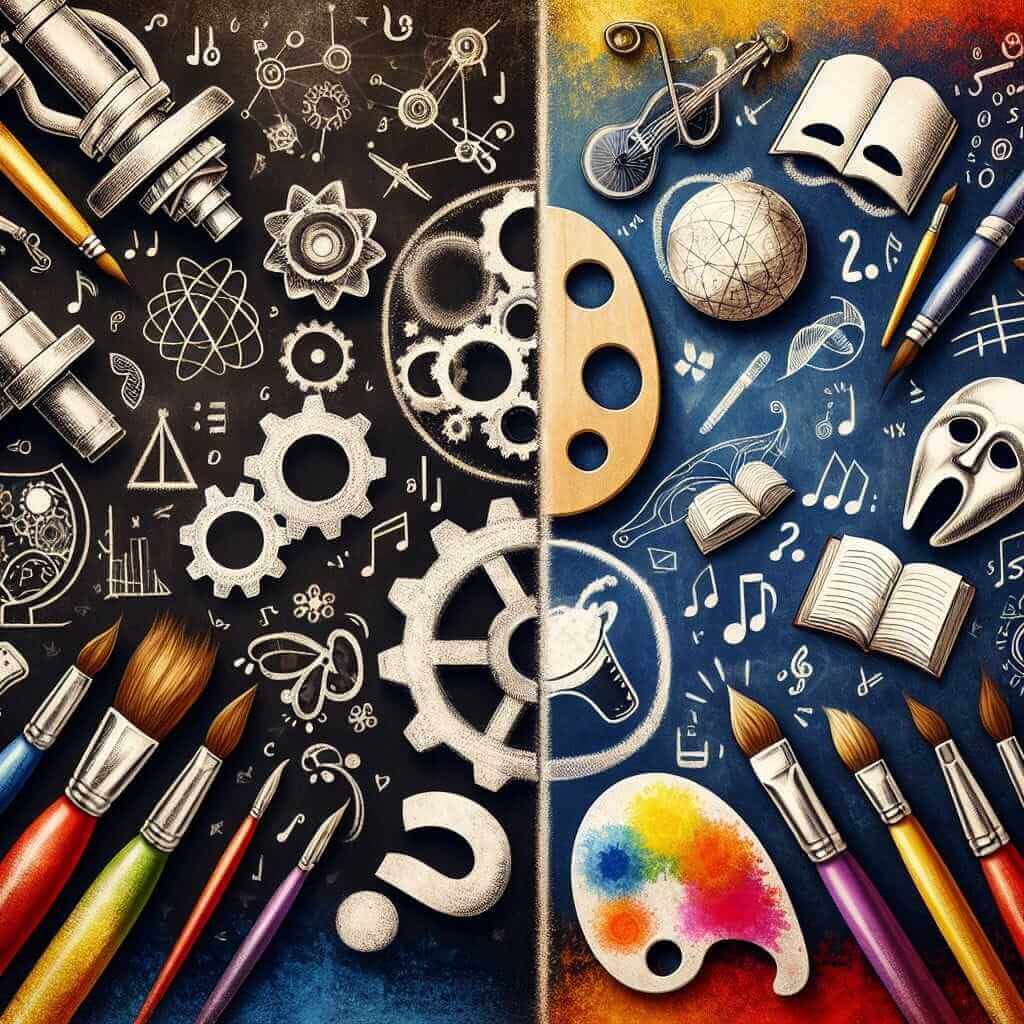The discussion around “The role of the arts in education” has been a consistent feature in past IELTS Writing Task 2 exams. This recurring theme underscores its importance in the realm of societal development and student growth. As arts influence critical thinking, creativity, and cultural understanding, it is no surprise that this topic continues to make an appearance. Based on an assessment of historical IELTS questions, topics pertaining to the educational value of arts have surfaced quite frequently. This trend is likely to persist given the ongoing global discourse on comprehensive education.
Drawing from this, let’s explore and create a sample task based on a relevant IELTS past exam topic.
Sample Task Prompt
The arts, including art, music, and theatre, are increasingly being dropped from school curricula. Discuss the reasons for this and the effects on children and society.
Analyzing the Prompt
Task requirements:
- Topic Clarification: We need to discuss why arts are being eliminated from school curricula and the subsequent impact on children and society.
- Keywords and Phrases: ‘Reasons for dropping arts’, ‘effects on children’, ‘effects on society’.
- Task Outcome: An essay that considers both prompts: reasons and effects.
Sample Essay
Over recent years, there has been a discernible trend of educational institutions phasing out courses centered around the arts, including music, theater, and visual arts. This essay will delve into the causes behind this development and its potential repercussions on both children and society at large.
One primary reason for the diminishing presence of arts in school curricula is the increasing emphasis on STEM (Science, Technology, Engineering, and Mathematics) subjects. Governments and educational policymakers argue that STEM education is critical for national progress and economic growth. As a result, resources and funding are often allocated disproportionately to these areas at the expense of the arts. Another contributing factor is the perception that arts education does not directly lead to lucrative career opportunities. Given the competitive job market, parents and students alike may prioritize subjects perceived to offer more immediate financial stability over artistic pursuits.

The exclusion of arts from education systems can have several negative effects. On a personal level, arts play a vital role in nurturing creativity and cognitive skills in children. Exposure to different forms of artistic expression can foster a child’s imagination, which is crucial not only for personal development but also in problem-solving and innovation. Furthermore, the arts provide an established outlet for emotional expression and mental well-being. The absence of such an outlet might contribute to increased stress and anxiety among students.
On a broader societal level, depriving children of arts education can lead to a diminished appreciation for culture and heritage. The arts are a reflection of societal values and traditions, and they carry historical significance. When young learners are not exposed to this aspect of education, there is a risk of cultural erosion. Additionally, societies that undervalue the arts may experience reduced social cohesion, as the arts often bring people together through shared experiences and community events.
In conclusion, while the prioritization of STEM subjects in educational systems is understandable, it is imperative not to undervalue the role of the arts. Both STEM and arts have unique contributions to personal and societal development. Therefore, a balanced approach that integrates both can yield the most holistic educational outcomes.
Word Count: 340
Key Considerations When Writing About This Topic
Vocabulary and Grammar Notes:
- Grammar: Ensure use of complex and compound sentences to reflect advanced proficiency.
- Vocabulary: Utilize topic-specific terms to demonstrate lexical resource.
Vocabulary List:
- Discernible (adj.) – /dɪˈsɜr.nə.bəl/: Recognizable, noticeable.
- Curricula (n.) – /kəˈrɪk.jə.lə/: Plural form of curriculum, meaning the subjects comprising a course of study in a school.
- Proportional (adj.) – /prəˈpɔː.ʃən.əl/: Corresponding in size or amount to something else.
- Perception (n.) – /pəˈsep.ʃən/: The way in which something is regarded, understood, or interpreted.
- Erosion (n.) – /ɪˈroʊ.ʒən/: The gradual destruction or diminution of something.
- Holistic (adj.) – /həˈlɪs.tɪk/: Relating to or concerned with complete systems rather than individual parts.
Conclusion
The role of the arts in education is undeniably crucial and should not be overshadowed by an exclusive focus on STEM. Future IELTS test-takers should prepare for similar themes by practicing their arguments and ensuring they understand both the causes and effects of major educational trends. Possible relevant future prompts may include discussing the integration of arts and STEM or the impact of cultural education on societal values.